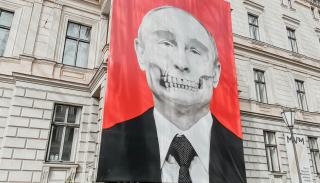
Breadcrumbs navigation
Authenticity, performativity, and profilicity in international relations: Autocracies and the evolution of the liberal world order
In this short video abstract, Federico Salvati discusses the key arguments from his new Review of International Studies article - Authenticity, performativity, and profilicity in international relations: Autocracies and the evolution of the liberal world order.
Want to know more? You can read the full article at DOI: https://doi.org/10.1017/S026021052500018X
BISA members receive access to RIS (and to our other journal European Journal of International Security) as a benefit of membership. To gain access, log in to your BISA account and scroll down to the 'Membership benefits' section. If you're not yet a member join today.
Abstract
How do authoritarian actors navigate the liberal international order, adopting democratic facades without committing to democratic principles? And why is it so difficult for the international normative system to debunk their pretence when it comes to the use of democratic values? This paper explores this question by introducing ‘profilicity’ and ‘performativity’ as key concepts to understand how autocratic regimes build powerful profiles within a liberal system that values authenticity. Unlike conventional theories, which assume that engagement with liberal norms requires genuine commitment, profilicity reveals that strategic image-building can be just as effective. Through this lens, we see how autocracies exploit liberalism’s own ideals, using performative adaptation to secure status and reshape norms. This paper suggests that the liberal order’s emphasis on sincerity may itself be a strategic weakness, one that autocratic actors skilfully navigate in a world increasingly driven by profiles over principles.
Photo by Brad Ritson on Unsplash